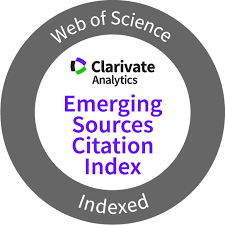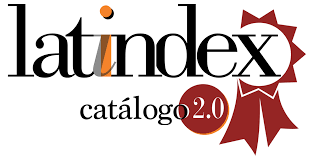What ethics for governmental communication? Ethical issues on government public relations / Que ética para a comunicação governamental? Questões éticas nas relações públicas governamentais
DOI:
https://doi.org/10.5783/revrrpp.v7i14.493Keywords:
governmental communication, virtue ethics, utilitarianism, deontological ethics, PortugalAbstract
As government is both a public and a political organization the goal of communication can thus be complex. Government communication balances between political marketing and the noble aim of government public relations – inform citizens and promote bidirectional communication. The aim of this article is to discuss the evaluation criteria of political communication, both theoretically and applied, based on the ethics of virtues. Instead of focusing the ethical analysis on the consequences of action (utilitarianism), or on a list of duties (deontological ethics), it is argued that the true foundation of moral life and ethical-political coherence lies in the character of the agent, be it the politician or the public relations professional.
Downloads
References
Aristotle (1982). The Nicomachean Ethics (translated by H. Rackan). Cambridge (Mass.): Harvard University Press.
Audi, R. (2012). Virtue Ethics as a Resource in Business. Business Ethics Quarterly, April, 273-291.
Blumenthal, S. (1980). The permanent campaign. New York: Simon & Schester.
Day, L. (1991). Ethics in mass communications: cases and controversies. Belmont, CA, Wadsworth.
Fairbanks, J.; Plowman, K. D.; & Rawlins, B.L. (2007). Transparency in Government communication. Journal of Public Affairs, 7(10), 23-37.
Fitzpatrick, K. & Gauthier, C. (2001). Toward a Professional Responsibility Theory of Public Relations Ethics. Journal of Mass Media Ethics, 16 (2&3), 193–212.
Garnett, J. L. (1992). Communicating for results in government. San Francisco: Jossey-Bass Publishers.
Global Alliance for Public Relations and Communications Management (2002). Benchmarking of codes of ethics in Public Relations. Availabe online at https://static1.squarespace.com/static/561d0274e4b0601b7c814ca9/t/56c20345c2ea510748cb2768/1455555401036/ethics-Benchmarking.pdf (Accessed at 19 september 2017)
Grunig, J. E. (2008). Public relations management in government and business. In L. Mordecai (Ed.), Government public relations: a reader (21-64). Boca Raton, FL: CRC Press.
Harrisson, J. (2004). Conflicts of duty and the virtues of Aristotle in public relations ethics. PRism, 2, 1-7.
Harrisson, K. & Galloway, C. (2005). Public relations ethics: A simpler (but not simplistic) approach to the complexities. PRism, 3, 1-17.
Kruckeberg, D. (1989). The need of an international code of ethics. Public Relations Review, 15(2), 6-18.
Kruckeberg, D. (1993). Universal ethics code. Public Relations Review, 19(1), 21-31.
Lee, M. (2012). Government Public Relations: What it is good for? In M. Lee, G. Neeley & K. Stewart (Eds.), The practice of government public relations (pp. 9-25). Boca Raton, FL: CRC Press.
Lee, M.; Neeley, G.; & Stewart, K. (Ed.). (2012). The practice of government public relations. Boca Raton, FL: CRC Press.
McNair, B. (2004). PR must die: spin, anti-spin and political public relations in the UK, 1997–2004. Journalism Studies, 5 (3), 325-338.
Moloney, K. (2000). Rethinking public relations: PR propaganda and democracy. London: Routledge.
Negrine, R., Mancini, P., Holtz-Bacha, C., & Papathanassopoulos, S. (Eds.). (2007). The professionalisation of political communication. Bristol, England: Intellect.
Norris, P. (2014). Watchdog Journalism. In M. Bovens, R. E. Goodin, T. Schillemans (Eds.), The Oxford Handbook of Public Accountability (525-541). Oxford: Oxford University Press.
Parsons, P. J. (2008). Ethics in Public Relations: A guide to best practice. London: Kogan Page.
Pfetsch, B. (1998). Government news management. In D. A. Graber, D. McQuail & P. Norris (ed.), The politics of news. The news of politics (70–93). Washington DC: CQ Press.
Plato (1961). Laws (translated by R.G. Bury). Cambridge (Mass.): Harvard University Press.
Theaker, A. (2004). Professionalism and regulation. In A. Theaker (Ed.), The public relations handbook (66-79). London: Routledge.
Downloads
Additional Files
Published
How to Cite
Issue
Section
License
Authors publishing in this journal agree to the following terms:
a. Authors retain copyright and grant the journal the right to be the first publication of the work as licensed under a Creative Commons Attribution License that allows others to share the work with an acknowledgement of authorship of the work and initial publication in this journal.
b. Authors may separately enter into additional arrangements for non-exclusive distribution of the version of the work published in the journal (e.g., placing it in an institutional repository or publishing it in a book), with an acknowledgement of initial publication in this journal.
c. Authors are allowed and encouraged to disseminate their work electronically (e.g. in institutional repositories or on their own website) before and during the submission process, as it can lead to productive exchanges, as well as earlier and higher citation of published work (see The Effect of Open Access).




